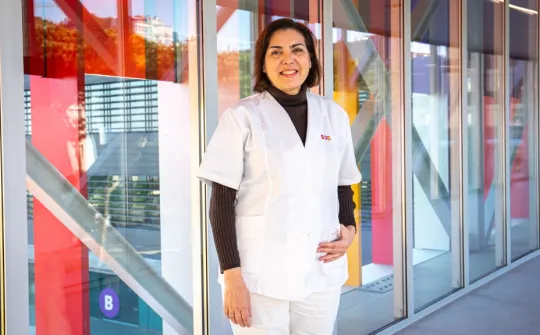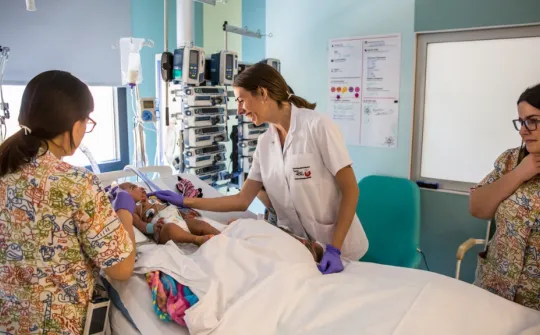
For the first time in Spain, the SJD Barcelona Children’s Hospital uses simulators that reproduce the anatomical features of children with mucopolysaccharidosis
For the first time in Spain, the SJD Barcelona Children’s Hospital simulation team has begun to develop anatomical simulation models adapted to the specificities presented by certain paediatric diseases. The objective is to allow the professionals who have to treat them to practise in a setting as close as possible to reality before doing so with a patient.
The professionals have started by creating a simulation model for mucopolysaccharidosis. Children suffering from this disease, who often have to undergo surgery, present a distinctive larynx which makes safe sedation very difficult for anaesthesiologists.
Accordingly, those responsible for the Simulation Programme have adapted a highly realistic simulation mannequin that “suffers” from the disease. With 3D printing techniques and medical-grade silicones they have constructed the pharynx and larynx with the characteristics of children suffering from mucopolysaccharidosis. This new simulation model has been used for the first time today for a course in Barcelona that has brought together anaesthesiologists from all over the word.
In this way, anaesthesiologists can practise the insertion of the tracheal tube in a model as close to reality as possible. They have also adapted the appearance of the face (patients with mucopolysaccharidosis present a number of specific features) to make it seem even more real. Collaborating in this project were the company BioMarin and the Fundación CIM of the Universitat Politècnica de Catalunya.
Simulation, valuable for training and for treating complex cases
This simulation session took place in the Darwin Room, an area dedicated to robotics and simulation in which health professionals can recreate the most critical or least common clinical situations they need to deal with in their daily work and thus practise them before having to deal with them in real situations.
SJD Barcelona Children’s Hospital's Simulation Programme opens up this line of work with the aim of contributing to personalised medicine. The creation of simulators with the particular characteristics of specific conditions is a step that significantly enhances the training of professionals to the needs of each type of patient.
The Hospital promoted simulation back in 2012, to improve decision-making and the development of effective work teams, through experience and reflection, and the acquisition and maintenance of skills. The overall objective is to enhance safety and quality in health care, and to improve the experience of patients, families and professionals.



